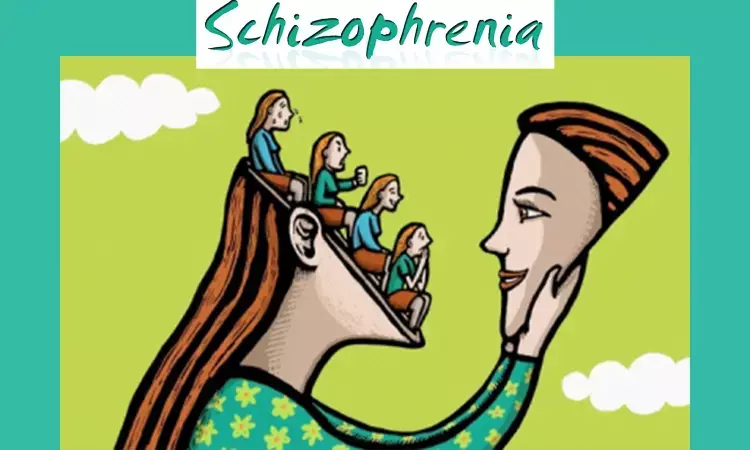- Home
- Medical news & Guidelines
- Anesthesiology
- Cardiology and CTVS
- Critical Care
- Dentistry
- Dermatology
- Diabetes and Endocrinology
- ENT
- Gastroenterology
- Medicine
- Nephrology
- Neurology
- Obstretics-Gynaecology
- Oncology
- Ophthalmology
- Orthopaedics
- Pediatrics-Neonatology
- Psychiatry
- Pulmonology
- Radiology
- Surgery
- Urology
- Laboratory Medicine
- Diet
- Nursing
- Paramedical
- Physiotherapy
- Health news
- Fact Check
- Bone Health Fact Check
- Brain Health Fact Check
- Cancer Related Fact Check
- Child Care Fact Check
- Dental and oral health fact check
- Diabetes and metabolic health fact check
- Diet and Nutrition Fact Check
- Eye and ENT Care Fact Check
- Fitness fact check
- Gut health fact check
- Heart health fact check
- Kidney health fact check
- Medical education fact check
- Men's health fact check
- Respiratory fact check
- Skin and hair care fact check
- Vaccine and Immunization fact check
- Women's health fact check
- AYUSH
- State News
- Andaman and Nicobar Islands
- Andhra Pradesh
- Arunachal Pradesh
- Assam
- Bihar
- Chandigarh
- Chattisgarh
- Dadra and Nagar Haveli
- Daman and Diu
- Delhi
- Goa
- Gujarat
- Haryana
- Himachal Pradesh
- Jammu & Kashmir
- Jharkhand
- Karnataka
- Kerala
- Ladakh
- Lakshadweep
- Madhya Pradesh
- Maharashtra
- Manipur
- Meghalaya
- Mizoram
- Nagaland
- Odisha
- Puducherry
- Punjab
- Rajasthan
- Sikkim
- Tamil Nadu
- Telangana
- Tripura
- Uttar Pradesh
- Uttrakhand
- West Bengal
- Medical Education
- Industry
Increased risk of Parkinson's disease in patients with schizophrenia

A new study conducted at the University of Turku, Finland, shows that patients with a schizophrenia spectrum disorder have an increased risk of Parkinson's disease later in life. The increased risk may be due to alterations in the brain's dopamine system caused by dopamine receptor antagonists or neurobiological effects of schizophrenia.
The record-based case-control study was carried out at the University of Turku in collaboration with the University of Eastern Finland. The study examined the occurrences of previously diagnosed psychotic disorders and schizophrenia in over 25,000 Finnish Parkinson's disease (PD) patients treated in 1996-2019.
In the study, patients with Parkinson's disease were noted to have previously diagnosed psychotic disorders and schizophrenia more often than the control patients of the same age not diagnosed with PD.
- Previous studies have recognised several risk factors for PD, including age, male sex, exposure to insecticides, and head injuries. However, the current understanding is that the development of PD is due to a joint effect of different environment, hereditary, and patient-specific factors. According to our results, a previously diagnosed psychotic disorder or schizophrenia may be one factor that increases the risk of PD later in life, says Doctoral Candidate Tomi Kuusimäki from the University of Turku who was the main author of the research article.
Study changes conception of the association between Parkinson's disease and schizophrenia
PD is currently the most rapidly increasing neurological disorder in the world. It is a neurodegenerative disorder that is most common in patients over 60 years of age. The cardinal motor symptoms include shaking, stiffness and slowness of movement. In Finland, circa 15,000 patients are currently living with a PD diagnosis.
In Parkinson's disease, the neurons located in the substantia nigra in the midbrain slowly degenerate, which leads to deficiency in a neurotransmitter called dopamine. As for schizophrenia, the dopamine level increases in some parts of the brain. In addition, the pharmacotherapies used in the primary treatment of PD and schizophrenia appear to have contrasting mechanisms of action. PD symptoms can be alleviated with dopamine receptor agonists, whereas schizophrenia is commonly treated with dopamine receptor antagonists.
- The occurrence of Parkinson's disease and schizophrenia in the same person has been considered rare because these diseases are associated with opposite alterations in the brain's dopamine system. Our study changes this prevailing conception, says Kuusimäki
https://onlinelibrary.wiley.com/doi/10.1002/mds.28484
Hina Zahid Joined Medical Dialogue in 2017 with a passion to work as a Reporter. She coordinates with various national and international journals and association and covers all the stories related to Medical guidelines, Medical Journals, rare medical surgeries as well as all the updates in the medical field. Email: editorial@medicaldialogues.in. Contact no. 011-43720751
Dr Kamal Kant Kohli-MBBS, DTCD- a chest specialist with more than 30 years of practice and a flair for writing clinical articles, Dr Kamal Kant Kohli joined Medical Dialogues as a Chief Editor of Medical News. Besides writing articles, as an editor, he proofreads and verifies all the medical content published on Medical Dialogues including those coming from journals, studies,medical conferences,guidelines etc. Email: drkohli@medicaldialogues.in. Contact no. 011-43720751


